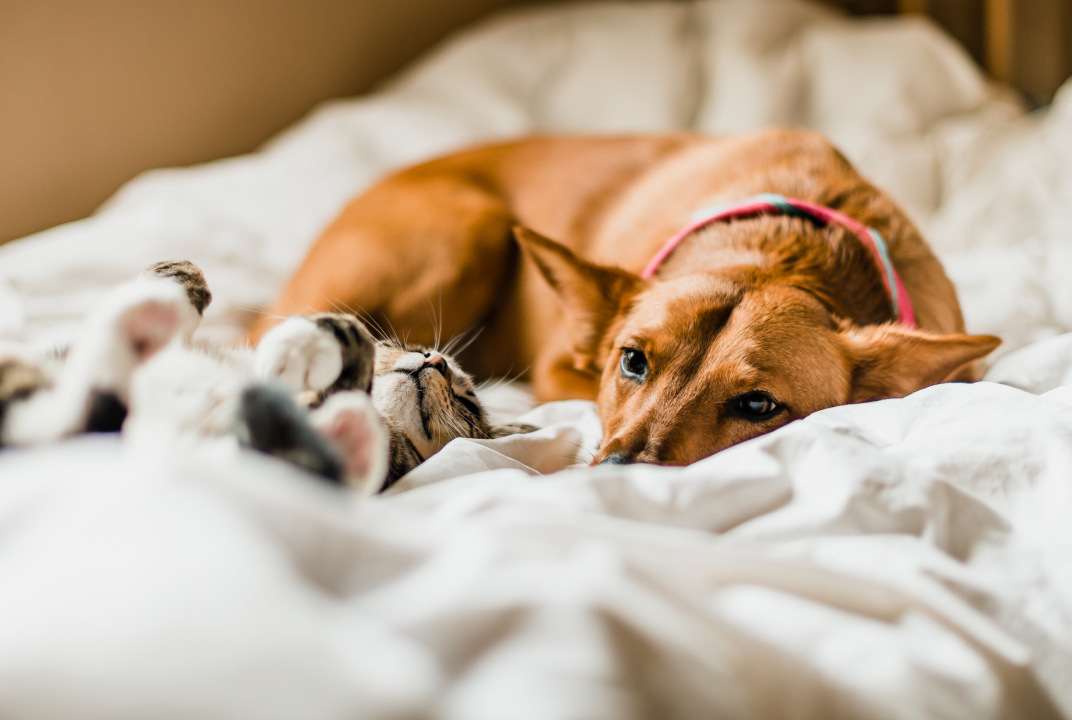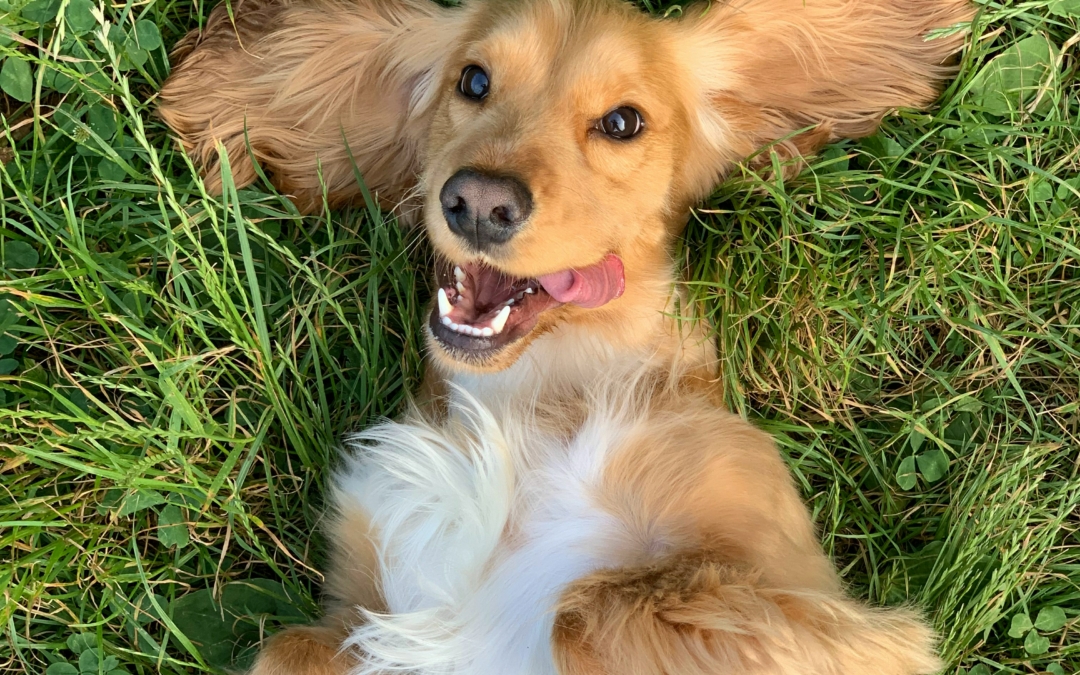Dogs will often vomit or have diarrhoea but don’t appear to be very sick. This may happen randomly or occur frequently.
If they are ill – ie they are flat and depressed and don’t want to eat; then it definitely warrants a vet visit. If they are losing lots of fluids with multiple vomits or diarrhoea episodes in a short period of time, this also means a trip to the vet. Thirdly if your pet has signs of bleeding such as in the vomit or diarrhoea then I would also recommend taking your pet to see a vet.
However, more often than not it is not one of these severe cases I just outline and there are lots of things you could do at home before needing to rush to the vet.
The first thing to consider when your pet has an upset stomach is to fast them.
Giving the digestive system a break is the best thing you can do. Always make sure they have access to plenty of clean fresh water.
Secondly, you can offer them some support to help heal and soothe their gastrointestinal lining.
- Slippery elm is well known for is gut soothing properties particularly for the oesophagus if there has been any vomiting. Give 1 tsp per 10 kgs twice daily. (Please note slippery elm is an endangered species so it is important to purchase from a sustainable source. )
- Marshmallow root has similar properties to slippery elm and is in Dr Nat’s Nourish Pet Tea along with many other healing herbs. This tea is perfect for when the digestive system needs a break. Just brew the tea and strain then offer with bone broth during a fast or syringe feed. Can also be fed with food.
- Bone broth is also very healing for the gut lining – offer diluted 50% in warm water (make sure it doesn’t contain garlic, onion, salt or solid fat from the top) – see my article here for more info on bone broth and a recipe.
- Probiotics! This is a major reason why I created my Restore Digestive Tonic. Restore is full of good bugs and digestive enzymes. The ginger in this product helps to soothe nausea and is an anti-emetic. Mix all the above together with the bone broth while giving their bellies a break from solid food.
For an adult dog is it safe to fast them for up to 3 days. Although 24 hours is usually plenty. For a puppy or a cat or even a tiny chihuahua only fast for 12 hours.
The following day I recommend introducing some steamed pumpkin. Mashing through a little bone broth will help encourage them to eat it. Continue adding all the other goodies listed above.
Then after another 24 hours (adult dog) or 12 hours in a cat/puppy you can reintroduce their normal food. Continue using the slippery elm, Nourish Pet Tea and Restore Digestive Tonic for at least a week.
If you’re concerned about reintroducing their regular diet or they are a particularly sensitive patient then using a freeze dried or air dried kibble is a good stepping stone (eg Frontier pets use my code: DRNAT10 for a discount on your first order). Alternatively a diet cooked at low temperatures – aka not highly processed – such as Lyka is also a good option (use my discount code DRNATS20 at the check out for 20% off your first order).
Please note: if diarrhoea or vomiting is a frequent occurrence it is also worth addressing the cause. The cause may well be that they are fed a dry food diet. See my article which explains how dry food diets cause food sensitivities.
If you would like help with your pet’s diet please book a consult with me,





